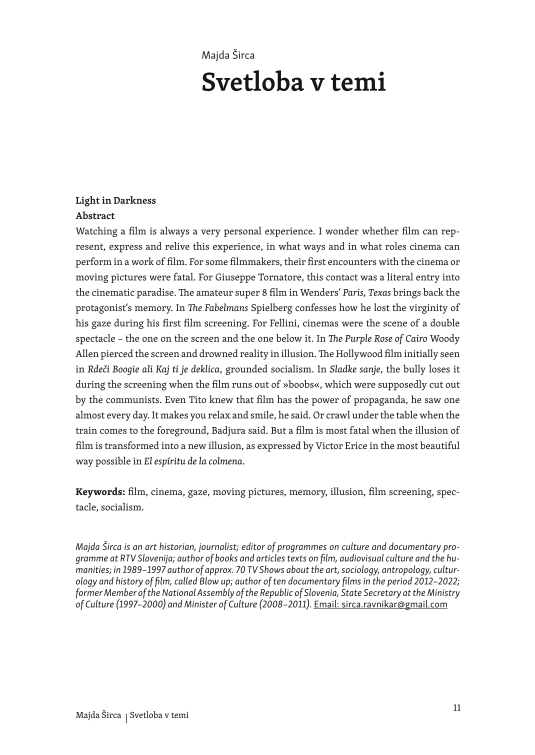Watching a film is always a very personal experience. I wonder whether film can represent, express and relive this experience, in what ways and in what roles cinema can perform in a work of film. For some filmmakers, their first encounters with the cinema or moving pictures were fatal. For Giuseppe Tornatore, this contact was a literal entry into the cinematic paradise. The amateur super 8 film in Wenders‘ Paris, Texas brings back the protagonist‘s memory. In The Fabelmans Spielberg confesses how he lost the virginity of his gaze during his first film screening. For Fellini, cinemas were the scene of a double spectacle – the one on the screen and the one below it. In The Purple Rose of Cairo Woody Allen pierced the screen and drowned reality in illusion. The Hollywood film initially seen in Rdeči Boogie ali Kaj ti je deklica, grounded socialism. In Sladke sanje, the bully loses it during the screening when the film runs out of »boobs«, which were supposedly cut out by the communists. Even Tito knew that film has the power of propaganda, he saw one almost every day. It makes you relax and smile, he said. Or crawl under the table when the train comes to the foreground, Badjura said. But a film is most fatal when the illusion of film is transformed into a new illusion, as expressed by Victor Erice in the most beautiful way possible in El espíritu de la colmena.




